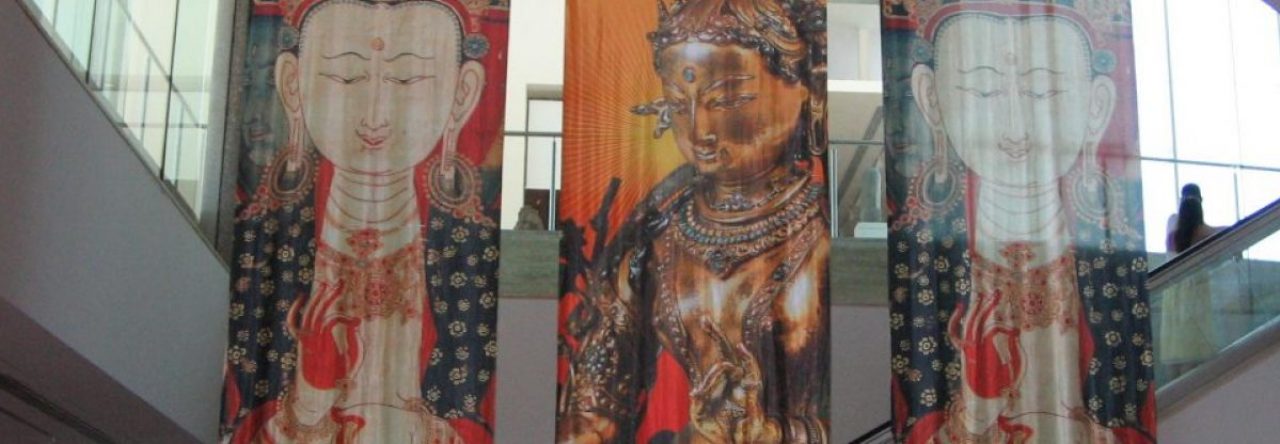Starting 28 August, this is an 8-week series exploring a coherent model of the Early Buddhist teachings. I intend it as a kind of ‘Buddhadharma for the Confused’ course, suitable for meditators of all levels. It finishes with an extra Sunday session on 23 October.
This is a course for moderns who are puzzled by the inconsistencies in the Buddhadharma. Buddhism provokes in readers a lot of puzzling ideas, such as: Does Buddhism really teach that the deepest truth is ‘nothingness’? Is there really no self? Am I really just the impersonal workings of mere conditions? Why would I give up my selfishness? Did the Buddha really mean that consciousness has to end? Why would I want that?! How does karma work? Do I have to believe in karma, to become enlightened? What is enlightenment, anyway? If freedom is to ‘go beyond’ right and wrong, doesn’t that leave us rudderless in daily society?
This course is intended as a course which will show how the Early Buddhist vision as a whole makes sense of personal experiencing – how being intimate with your experience as a precise identity, the particular person you are on planet Earth in these extraordinary times, can be the path of spiritual freedom, of ultimate freedom while living. We can appeal to our first-person experience to verify the Early Buddhist vision, and from here we can sort out which of those questions (if any) are useful for a fulfilling life, and which are irrelevant. Which can never be definitively answered, and which can be settled in one’s own bodily experience. And, which need re-framing?
As always, in my courses, bodily-felt experience is the touchstone. I will invite participants to consult their bodily-felt meaning of the Buddhist concepts, and to experience the vision in terms of a ‘process orientation.’ If you have some ‘Focusing’ experience, this course is made for you. If not, you will learn, as we proceed, to use your body’s ‘felt sense’ for insight.
I am basing the course on Sue Hamilton-Blyth’s book Early Buddhism: A New Approach – ‘I’ of the Beholder. Participants do not need to have read the book, however. I’ll send out excerpts from the chapters, beforehand, to facilitate the conversation. (However, I do recommend that you read this book, when you get the chance, if you want to make sense of Early Buddhism.)
We will not be slavishly adopting Dr. Hamilton-Blyth’s conclusions, however. Instead, we will seek, where possible, to confirm them in our experience (or disconfirm them) – and also to carry her approach forward to its next steps, wherever possible. I recommend that our individual purpose be to generate out of this content a coherent vision of the path of human transformation that contributes to our happiness and the happiness of others.
Each week there’ll be a half-hour presentation on a chapter of Sue Hamilton-Blyth’s book Early Buddhism: A New Approach – ‘I’ of the Beholder. In support of participants’ experiential learning, each week there will be awareness experiments to do as we go about our daily lives.
FOR THE FIRST WEEK, the conversation is about: Chapter Three: The Focus on Experience. Each week, after the short introductory talk, then we’ll have a conversation generated by the content as presented that week.
The list of the weeks’ topics follows the names of the chapters, in this order:
Week 1 – Chapter Three: The Focus on Experience.
Week 2 – Chapter One: Setting the Scene: The ‘not-self’ character of experience; and, the five ‘aggregates’ (the five primary sentient processes of body, feeling-tones or sensations, perceptions, intentionality, consciousness).
Week 3 – Chapter Two: The Indian Context.
Week 4 – Chapter Four: The World of Experience.
Week 5 – Chapter Five: The Experience of Subjectivity and Objectivity.
Week 6 – Chapter Six: The Structure of Experience.
Week 7 – Chapter Seven: The Limits of Experience.
Week 8 – Chapter Eight: A World of Metaphor: Continuity, Death and Ethics.
And, the ninth and closing session (23 October) will be focussed on the book’s postscript: On What is a human being?
